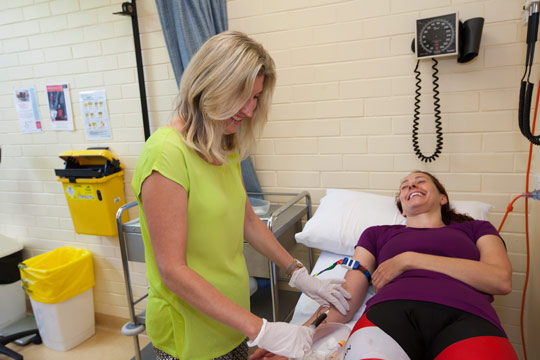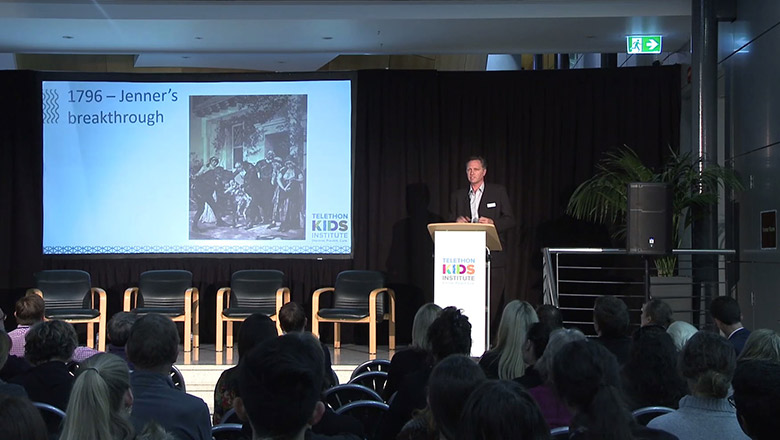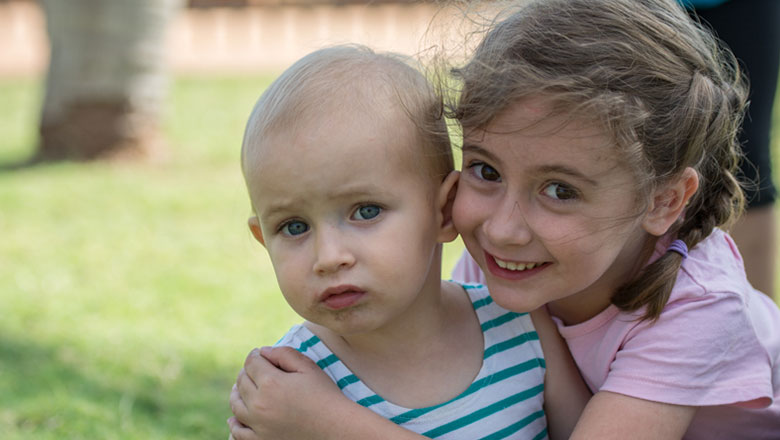Search
Research
Longitudinal Type 1 and 2 Diabetes Plasma and Serum RepositoryThe Serum & Plasma bank was established to provide a store of samples from subjects with diabetes as well as their families.
Research
Australian Childhood Diabetes DNA RepositoryCollecting DNA samples from Australian families affected by diabetes.
Research
Efficacy of human papillomavirus 16 and 18 vaccine against cervical cancer: Final randomized, double-blind PATRICIA trialWe report final event-driven analysis data on the immunogenicity and efficacy of the human papillomavirus 16 and 18 (HPV-16/18) AS04-adjuvanted vaccine in...
Research
Type 1 and Type 2 Diabetes DNA bankA register which stores demographic and clinical data on all patients attending the diabetes clinic at Princess Margaret Hospital
Research
Impact of high coverage of monovalent human rotavirus vaccine on Emergency Department presentations for rotavirus gastroenteritisThe program was associated with a substantial decline in rotavirus attributable non-admitted AGE presentations to ED among children aged <5 years.
Research
Diabetes Translational ResearchThe year 2013 saw the progress in our research from purely lab-based studies towards taking a step closer to translational research.
Research
Improving immunity to Haemophilus influenzae in children with chronic suppurative lung diseaseEndobronchial infections related to non-typeable Haemophilus influenzae (NTHi) are common in children and adults with suppurative airway disease...
Research
Bioenteric Intragastric BalloonThe purpose of this randomized clinical trial is to determine whether the use of the BIB aids weight loss in obese adolescents.

Research
Can exercise training Improve health in young people with type 2 diabetes?We are studying exercise in young people with T2DM and obese young people at risk of developing type 2 diabetes
Research
Epidemiology of T2DM in childhood and associated disease complicationsInvestigating the incidence of childhood Type 2 Diabetes in the Western Australian community
Research
Oral Insulin TrialTo see if giving insulin by mouth (in a capsule) will delay or prevent T1DM in people at increased risk of developing diabetes.
Research
Intranasal Insulin Trial IIIf successful, this vaccine could prevent type 1 diabetes and the need for daily insulin injections in people at risk.
Research
Neurocognitive outcomes of children with type 1 diabetes mellitusTo conduct an analysis of children with TIDM’s cognitive profile at an age in which both cognition and cortical development are still maturing

News & Events
Meningococcal research paves way for vaccine useA series of The Kids Research Institute Australia studies looking at safety for Meningococcal ACWY vaccines in children has led the way for its use in Australia.

News & Events
Vaccination seminar presentationsOn Monday May 30, The Kids Research Institute Australia held a free public seminar on vaccination, hearing from paediatricians and infectious disease researchers.

News & Events
Community Conversation- Infectious Diseases in ChildrenConsumers and community members are invited to join us to provide input into our childhood infectious diseases research.

News & Events
Vaccination timing essentialWe all know how important it is to vaccinate a child against harmful diseases but vaccinating a child at the right wrong age can cost lives.
News & Events
Experts gather for Aboriginal Immunisation WorkshopExperts in Aboriginal infectious disease research are in Perth this week for the National Indigenous Immunisation Research Workshop (November 7-8).
News & Events
New vaccine could protect against more types of cancer-causing HPVTrial of new vaccine that could provide women with additional protection against Human Papillomavirus (HPV) types known to cause cervical cancer.
